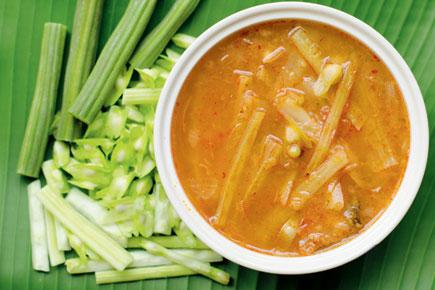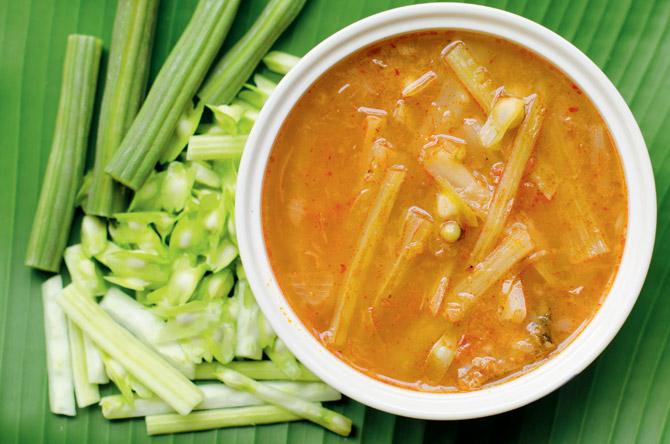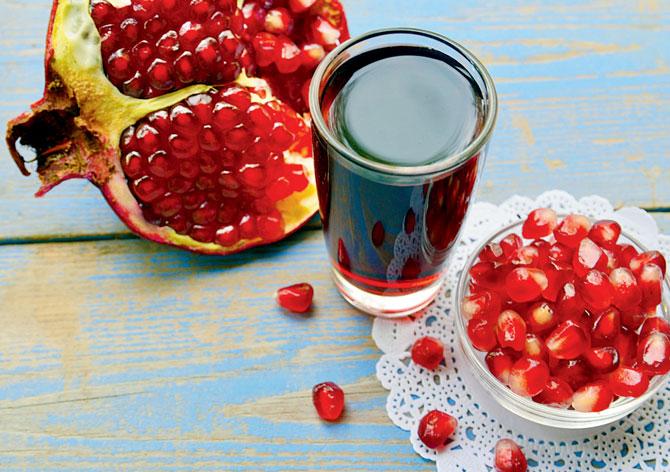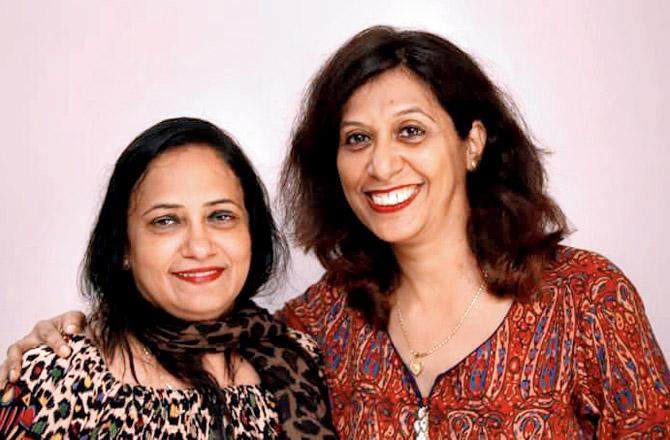If you thought Bohri food was all about khichda and raan, sign up for a vegetarian pop-up to discover DCP and Chana Handi


Palidu
ADVERTISEMENT
A childhood memory that Shirin Dhoondia vividly recollects is enjoying a Sunday feast of DCP, an acronym coined by the younger members of the Bohri community for the vegetarian dish, Dal Chawal Palidu. Its lengthy recipe includes preparing lentil rice and using the leftover water from boiled lentils to make palidu — a medium spicy curry starring drumsticks thickened with chickpea or wheat flour.
"No celebration at home or at weddings is complete without DCP. My mother [Salma] would also include it in the thaal that she would prepare on the first day of Muharram. Though we would mainly enjoy non-vegetarian fare, this is one vegetarian dish that I relish to date," says Dhoondia, who will include it as part of her first vegetarian Bohri thaal pop-up presented by Commeat.

Daram nu Sharbat
Veggie delight
Born and bred in Pune, Dhoondia moved to Mumbai in 2000. While she has previously worked with MNCs, the 44-year-old decided to venture into cooking full-time early this year with an aim to introduce Mumbaikars to the cuisine of her community that migrated from Yemen to Gujarat and later, settled in the city too. She observes that certain influences from the Gujarati community have seeped into Bohri cuisine. "For instance, our Lilotri Shaak is similar to Gujarati undhiyu. But you won't find the distinct sweet-sour flavour profile of Gujarati cuisine in Bohri food," says Dhoondia, who has previously hosted non-vegetarian thaal pop-ups and catered via Holachef along with sister, Durriya Rampurwala. She says, "Our guests would often comment on how vegetarians were missing out on Bohri cuisine since it is meat-heavy. So, we decided to host a full vegetarian meal."

Shirin Dhoondia and Durriya Rampurwala
Start with dessert
At the pop-up, once you are served the welcome drink, Daram nu Sharbat (pomegranate juice), you'll sit around a thaal (platter) for a community dining experience. The meal will begin with the tradition of having a grain of salt — said to cleanse the palate and cure diseases — and then, move on to Sodanu. "The dish comprising steamed rice garnished with dry fruit, raisins and a sprinkling of sugar is a tradition to welcome guests to feast," she adds.
Serving sweet dishes first is considered auspicious. So, start your meal with Malido, an Eid specialty made with whole-wheat flour, ghee, khoya, dry fruit and edible gum, and Anjeer no Halwo prepared with dry figs. The menu also features Smoked Moong Daal Samosas where the fried-till-crisp snack is stuffed with spiced and roasted green gram and Chana Handi, a vegetarian version of the chicken starter, featuring boiled potatoes and chickpeas.
The meal also includes Tuvar Dal Pulav served with Thandu Ringna nu Bhartu, a roasted eggplant dish similar to the Punjabi baingan bharta. "But our version is mildly spiced and served cold, like hummus. It's an ode to our Middle-Eastern roots," she adds.
 Subscribe today by clicking the link and stay updated with the latest news!" Click here!
Subscribe today by clicking the link and stay updated with the latest news!" Click here!






